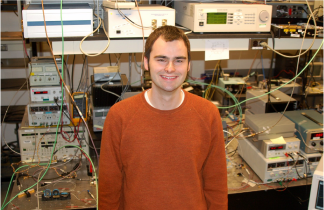As the leaves are changing color and the days are becoming shorter, it's time to get your CLEO submission into shape. Time to order those parts with long lead-times. Time to optimize your code. Time to hunker-down, build your experiment and collect data. And this time, perhaps even demonstrate your prototype.
This Thursday marks the official Call for Papers for CLEO 2011 in Baltimore. The deadline for submissions (with the exception of post-deadline papers) is December 2, 12:00 pm EST. For your convenience, and hopefully not to stress you out, I've embedded a countdown timer at the top of the blog.
CLEO 2011 will prove to be even more exciting this coming May due to the addition of a new conference, CLEO: Applications and Technology. The classic CLEO conference, CLEO: Science and Innovation and CLEO/QELS: Fundamental Science, will still remain intact. The new conference will "explore the intersection of academic research with product commercialization." Papers submitted to the Applications and Technology conference will demonstrate the transition of fundamental and applied research toward product commercialization. The conference programmers emphasize work should be pre-commercial. Topic categories include Biomedical, Environment/Energy, Government and National Science, Security and Standards Applications, and Industrial.
The addition of CLEO: Applications and Technology, to classic CLEO, QELS, Market Focus, and the Expo gives continuity to the spectrum (no pun intended) of innovation at the conference. Under one roof conference-goers will now be able to learn about break-throughs in fundamental science (QELS), applied science (CLEO), the transition of applied research to commercial products (Applications and Technology), commercial developments and research ready-for-commercialization (Market Focus), as well as see and purchase commercial products first-hand (Expo).
In my opinion, the move to foster more collaboration and communication between fundamental research and product development is wholly positive. I recently showed my electronics class the NOVA special Transistorized which recounts the development of the transistor. The history of this device that revolutionized all of our lives shows how synergy between commercial enterprise and fundamental science can produce both Nobel laureates and corporate behemoths like Sony and Intel. Let's hope history repeats itself in Baltimore.
Monday, September 27, 2010
Subscribe to:
Post Comments (Atom)

No comments:
Post a Comment